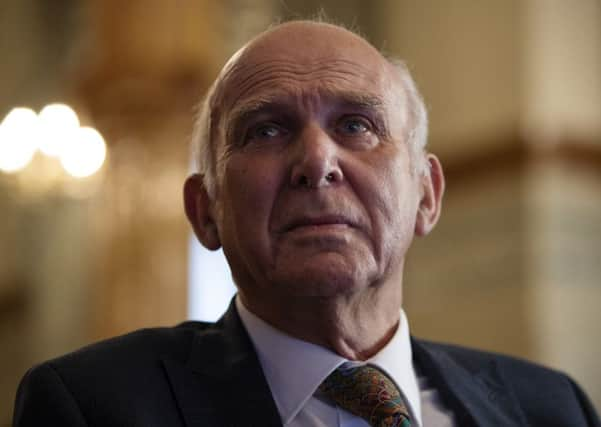Ian Swanson: Party of middle ground won't take centre stage


The increasing discontent of the anti-Corbyn MPs in Labour’s ranks and the Tory splits over Brexit fuel speculation about defections from the two big UK parties.
Lib Dems, of course would like these disaffected MPs to flock to them – but they know that’s not likely to happen.
Advertisement
Hide AdAdvertisement
Hide AdThe Lib Dems ought logically to be doing much better out of the whole Brexit debacle. While the Tories preside over a shambles and Labour hedges its bets, the Lib Dems have been the most outspoken in favour of a second referendum and remaining in the European Union.
But the party saw its Westminster contingent rise only from eight to 12 at last year’s general election and recent opinion polls give them between six and 11 per cent support.
It seems the fateful decision to accept David Cameron’s offer of coalition after the 2010 UK election still makes voters unwilling to back the Lib Dems.
So is a new moderate party the way forward for those disenchanted with both the big UK parties?
Advertisement
Hide AdAdvertisement
Hide AdTony Blair has argued voters would not find it an “acceptable choice” if the options on offer at the next election are Jeremy Corbyn or Boris Johnson. “Something will fill that vacuum,” he said.
Meanwhile UK Lib Dem leader Sir Vince Cable wants to keep his party in the centre of the picture, while broadening it out. Last week he talked about turning the Lib Dems “from an old-style political party into a new, open movement” – a sort of Momentum for moderates.
His proposals include a new class of “supporter” who could help shape policy and choose the leader but without having to pay a membership fee. He also wants the party to allow the possibility of a non-MP becoming leader when he steps down once Brexit is “resolved” – although anti-Brexit campaigner Gina Miller, who is often touted for the post, has specifically denied any interest.
Lib Dems have met officials from En Marche, the centrist movement set up by Emmanuel Macron which helped to elect him as French president. Sir Vince also looks to the example of Canadian Liberal Justin Trudeau, who took his party from third to first place despite a first-past-the-post system. Both these charismatic figures achieved surprise success – but that doesn’t easily translate to the UK.
Advertisement
Hide AdAdvertisement
Hide AdWhen it comes to new breakaway parties, we’ve seen it all before in the Social Democrats – and it didn’t work.
The SDP had high-profile ex-cabinet ministers at the helm and looked as if it might just be able to fulfil its dream of breaking the mould of British politics. The party formed an alliance with the Liberal Party and in 1983 they narrowly missed out on second place, winning more than 25 per cent of the votes to Labour’s 28 per cent, but still ended up with just 23 MPs.
There’s little sign of any big names ready to lead a new centrist party today. Any such party would almost certainly have to ally with the Lib Dems again. And with the electoral system unchanged it is difficult to see them making any more headway than their predecessors 35 years ago – however dire the current situation.